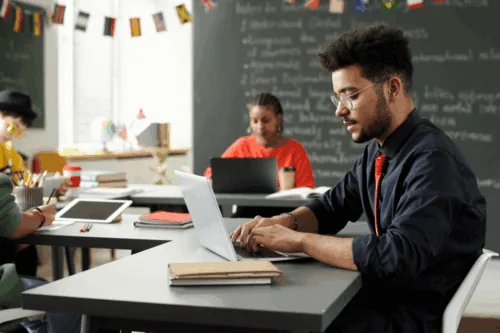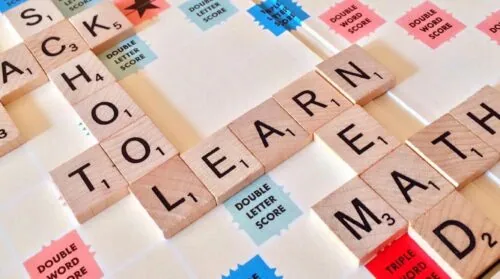Welcome to our comprehensive guide on Florida special education laws! Whether you’re a parent, educator, or a student navigating the complexities of special education, we help you understand the critical elements of the laws that ensure all students receive the education they deserve.
Empowerment Through Knowledge
In this guide, you’ll find detailed discussions about the critical components of Florida special education laws, including IEPs, rights and responsibilities, and the resources available to support you. Each section will provide actionable advice and insights to help you make informed decisions and advocate effectively for educational needs.
So, whether you’re just starting to explore the world of special education or seeking deeper insights to enhance your advocacy skills, this guide offers valuable information to empower you on your journey. Let’s dive in and explore the essential features of Florida special education laws together!
Understanding Florida Special Education Laws
Florida special education laws ensure that all students with disabilities receive a Free and Appropriate Public Education (FAPE). This aligns with the Individuals with Disabilities Education Act (IDEA), a federal legislation that mandates public schools provide tailored educational services to eligible students with disabilities.
Core Objectives of Florida Special Education Laws
These laws focus on several key elements:
- Identification and assessment: Schools must identify students needing special education services. Upon identification, a comprehensive evaluation determines their specific needs.
- Individualized Education Program (IEP): Each student identified as needing special education services gets an IEP.
- Inclusion: Florida laws advocate for including students with disabilities in mainstream classrooms as much as possible, fostering an inclusive educational environment.
Covered Disabilities
The laws cover any student formally assessed as having a disability that adversely affects their educational performance. Disabilities include, but are not limited to, autism, hearing impairments, cognitive impairments, and emotional disturbances.
Parental Involvement
Also, parental involvement is critical under Florida special education statutes. Parents should participate actively in the assessment process and development of their child’s IEP, ensuring they have a voice in their child’s education.
This foundational understanding sets the stage for exploring how these laws translate into day-to-day schooling and what specific rights and responsibilities are in place for parents and students under the Section 504 plan.
Critical Requirements of Florida Special Education Laws
Delving deeper into the state’s special education laws, it’s essential to understand the specific requirements that schools must fulfill to comply with state and federal regulations.
Detailed Evaluations
Proper assessment and reevaluation are crucial:
- Initial Evaluation: Must be conducted within 60 days of parental consent.
- Reevaluation: This occurs at least every three years to assess if the student’s educational needs have changed.
Accessibility and Accommodations
Florida schools are required to provide necessary accommodations that may include:
- Modification of curriculum or teaching methods.
- Provision of assistive technology.
- Accessibility adjustments within the school environment.
Training and Resources for Educators
Teachers and school staff must receive ongoing training on the best practices for educating students with disabilities. This includes understanding diverse learning needs and implementing effective teaching strategies.
Following these requirements is pivotal for schools to provide an equitable learning environment under the framework of Florida’s special education laws, ensuring every student gains educational benefits.
Rights and Responsibilities for Parents and Students
Understanding your rights and responsibilities is critical when navigating Florida special education laws. This knowledge empowers parents and students alike, enhancing the educational experience.
Parents’ Rights
Parents hold crucial roles in the special education process:
- Right to Information: Parents must stay informed about their child’s progress and the effectiveness of the education provided.
- Consent and Decision-Making: Schools need parental consent for evaluations and must involve parents in significant decisions regarding their child’s education.
- Dispute Resolution: Parents have the right to seek mediation or a due process hearing if disagreements arise.
Students’ Rights
All students are entitled to specific rights:
- Appropriate Education: Students should receive education tailored to their individual needs.
- Non-Discriminatory Treatment: Ensures all students, regardless of disability, have equal educational opportunities.
- Participation in Decisions: Older students, typically high school students, can be involved in IEP meetings.
Students and parents must fulfill specific responsibilities to facilitate a smooth educational process. These include regular attendance, participation in IEP meetings, and communication with school officials.
The Role of Individual Education Plans in Florida
Individual Education Plans (IEPs) are a cornerstone of Florida special education laws, ensuring that each student’s unique needs are met with customized educational strategies.
Creation of an IEP
An effective IEP involves:
- Assessment Data: Utilizes comprehensive evaluation results to determine specific educational needs.
- Goals Setting: Establishes measurable annual goals, including academic and functional goals.
- Team Collaboration: Involves educators, parents, and sometimes the students themselves, ensuring all perspectives are considered.
Implementation and Monitoring
The focus then shifts to implementation:
- Customized teaching strategies and materials.
- Regular assessments to monitor progress.
- Adjustments as needed based on assessment feedback and changing needs.
Annual Reviews
IEPs are not static documents; they require regular reviews to ensure they remain relevant:
- Annual IEP reviews assess the effectiveness of the current plan and make necessary updates.
- They are reevaluated every three years or more frequently if conditions change or the student or parent requests it.
An IEP’s role is not just about compliance with Florida special education laws but about fostering an environment where students with disabilities can flourish and achieve their full academic potential. Understanding these strategies provides a pathway to successful education outcomes. Look further into the challenges faced and solutions in implementing these laws in Florida’s educational systems.
Challenges and Solutions in Implementing Florida Special Education Laws
Implementing Florida special education laws presents both challenges and opportunities for schools and families.
Identifying Challenges
Some of the most common challenges include:
- Funding constraints impact the availability of resources necessary for special education programs.
- Lack of adequate training for teachers and staff on special education practices and updates.
- Communication gaps between parents and schools can hinder the effectiveness of educational plans.
Strategic Solutions
To address these challenges, actionable solutions have been identified:
- Increased Funding: Advocating for more state and federal resources can provide better support for special education.
- Professional Development: Implement ongoing training programs for educators on the latest special education tactics and laws.
- Enhanced Communication: Regularly scheduled meetings and digital communication platforms can bridge the information gap between home and school.
While challenges remain, these solutions offer practical steps toward improving the implementation of Florida special education laws, aiming to create a more inclusive and effective educational system. Next, explore the resources available to assist in navigating these laws.
Resources Available for Support Under Florida Special Education Laws
Several resources are available to support students, parents, and educators within the framework of Florida special education laws.
Educational Resources
These include:
- Florida Department of Education: Offers guidelines, training materials, and policy updates on their website.
- Local School District Resources: Schools provide workshops and training sessions for parents and teachers.
Support Groups and Organizations
Engaging with support networks can be incredibly beneficial:
- Parent Support Groups: These groups offer a platform for sharing experiences and strategies.
- Disability Advocacy Organizations: Provide legal assistance and advice on educational rights under Florida special education laws.
Online Tools and Platforms
Technology also plays a crucial role in supporting special education:
- Educational apps and websites tailored for special education needs.
- Online forums where educators and parents can exchange insights and advice.
With these resources, there is better access to the necessary tools and community support to navigate the complexities of Florida special education laws effectively. Understanding how schools put these laws into practice unveils another layer of their implementation.
How Schools Implement Florida Special Education Laws
Schools play a crucial role in the successful implementation of Florida special education laws, focusing on practical and compliant strategies.
Development of School Policies
Key steps include:
- Creating comprehensive policies that align with both state and federal guidelines.
- Ensuring that these policies are accessible to all staff and the school community.
Training and Development
Schools must keep their staff well-prepared:
- Regular training sessions on new laws and educational techniques.
- Workshops that focus on practical implementation of IEPs and inclusion strategies.
Monitoring and Evaluation
To maintain compliance and effectiveness, schools implement:
- Regular audits and reviews of special education practices.
- Feedback mechanisms that involve parents and students in evaluations.
With these approaches, schools aim to not only comply with Florida special education laws but also to enhance the educational outcomes for students with disabilities. The recent changes and updates in these laws are also crucial for keeping all stakeholders informed and adaptive.
Recent Changes and Updates to Florida Special Education Laws
Staying informed about the latest changes and updates to Florida special education laws is essential for all involved.
New Legislation and Policies
Recent updates include:
- Enhancements to IEP processes, making them more streamlined and parent-friendly.
- Increased focus on technological aids in classrooms to support students with disabilities.
Supported Decision-Making (SDM)
Supported Decision-Making is a process that allows a person with a disability to make their own decisions with the help of trusted friends, family, or professionals. On June 14, 2024, Florida Governor Ron DeSantis signed SDM into law, making Florida the 24th state to do so. SDM requires Florida courts to consider SDM before more restrictive options. However, the individual makes the final decision and can change their mind or their supporters if it’s not working well.
HB 173
Impact on Implementation
These changes impact schools and families:
- Schools are adapting by integrating new training programs and updating their curriculums.
- Families are becoming more involved in the educational planning process.
With these updates, Florida continues to enhance its educational framework, ensuring that all students with disabilities receive the required support and opportunities to succeed. Transitioning into our FAQ section, let’s address some common inquiries related to Florida special education laws.
FAQs
What is an Individual Education Plan (IEP)?
An IEP is a document developed for each public school child who qualifies for special education and their individual needs.
How do I know if my child qualifies for special education in Florida?
Qualification depends on a detailed evaluation that assesses if your child has one of the identified disabilities affecting their ability to learn.
Can parents dispute decisions made by the school regarding special education?
Yes, parents have the right to challenge decisions through various means including mediation, state complaints, and due process hearings.
How often are IEPs reviewed?
IEPs are reviewed annually to make necessary adjustments based on the student’s progress and changing needs. Additionally, they are reevaluated comprehensively every three years.
What rights do students with disabilities have under Florida special education laws?
Students are entitled to an appropriate education tailored to their needs, non-discriminatory treatment, and the opportunity to participate in decisions about their education.
Conclusion
Florida special education laws provide a robust framework designed to ensure that all students with disabilities receive a tailored and equitable education. By understanding these laws, their requirements, and staying informed about recent changes, parents, educators, and students can collaborate more effectively to enhance educational outcomes.
Take Action
The journey towards an inclusive educational environment requires active participation and continual learning. If you’re seeking to join a community that values diversity and inclusion, especially in the workplace or educational settings, join Diversity Employment. Here, you can find resources, support, and diversity jobs to advocate for inclusive practices that benefit everyone.
Together, we can make a significant impact in the realm of education and beyond. Join Diversity Employment today and be part of a community that drives positive change.




